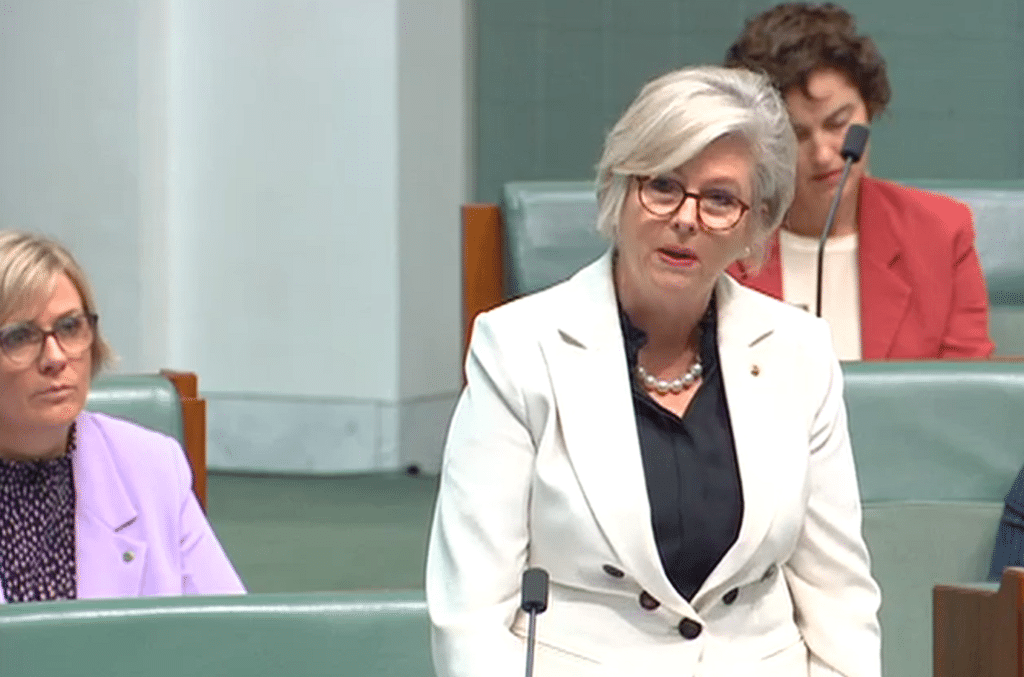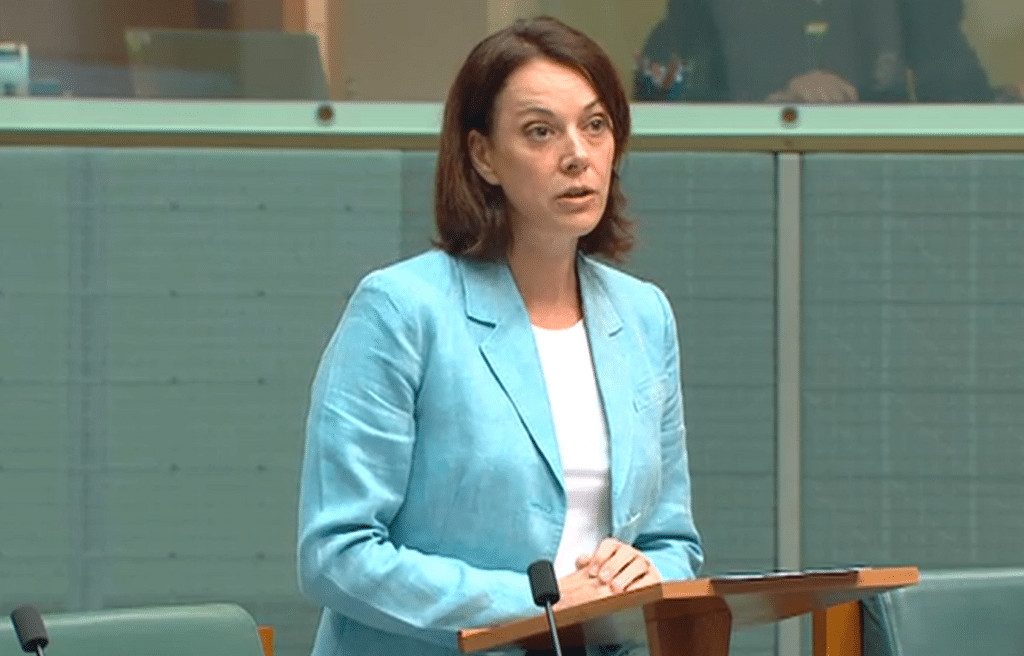Independent MP Dr Sophie Scamps has introduced a new bill to parliament designed to end the ‘jobs for mates’ culture in federal politics.
The bill seeks to legislate a transparent and independent process for major government public appointments, including the creation of a Public Appointments Commissioner, who would be charged with ensuring politicians remain at arm’s length during the recruitment and appointment process.
Dr Scamps’ bill would also establish departmental Independent Selection Panels which would be overseen by a Parliamentary Joint Committee on Appointments. The idea is to stop a culture that currently sees governments and ministers handing often lucrative public positions to political allies or connections.
Dr Scamps said the bill, aptly named ‘Ending Jobs for Mates’, would help restore trust in politics.
“More than a decade of cronyism and party-political appointments to important public positions have eroded trust and integrity in our democracy,” Scamps said.
“Australians have seen a fossil fuel executive appointed as chair of The Climate Change Authority; a mining and fossil fuel executive put in charge of the National Covid-19 Commission at the height of the pandemic, while the AAT is to be abolished as a result of cronyism and ‘jobs for mates’ style appointments.
“There is often more rigour and transparency for a $100,000 per year position in the public service, than there is for a government appointed $500,000 board position.”
Dr Scamps’ bill was drafted in partnership with the Centre for Public Integrity, and is backed by former NSW Court of Appeal judge, the Hon Anthony Whealy KC, who urged the parliament to support the framework.
“Australians must be able to have confidence that public appointments will act in the public interest. Dr Scamps’ bill establishes a comprehensive framework for the making of all major public appointments, and we urge the parliament to support it and end once and for all the ‘jobs for mates’ culture that has had such a destructive impact on public trust in government,” Whealy said.
In parliament on Monday, Dr Scamps introduced the private members’ bill, which was seconded by Independent MP Helen Haines.
“Jobs for mates can constrain public policy,” Haines said in parliament. “This is a big problem, but this bill brings a clear fix which would align us with international best practice.”

Dr Scamps’ bill comes after research from the Grattan Institute last year found 1 in 10 public appointees have a “direct polticial connection”, with this number rising to more than 1 in 5 for federal government board positions that are well paid, powerful or prestigious. It also found government boards, tribunals, and agencies are occupied with people who have previously worked in politics. Most often, these people are connected to the political party that was in power at the time they got the job.
Meanwhile, a survey from the Australia Institute found overwhelming support for an independent appointment process, with 68 per cent of voters backing a process like the one proposed by Dr Scamps.
Dr Scamps said it was good the Albanese had announced a review into public sector board appointments, but there was more that needed to be done.
“The appointments process must be addressed far more broadly to include all major public appointments, not just those to boards, and the shortlisting of candidates must be taken out of ministerial hands,” she said.
Attorney-General Mark Dreyfus announced late last year that the Administrative Appeals Tribunal (AAT) would be abolished, with a new review body to be established in its place. Dreyfus said the reputation of the AAT has been “irreversibly damaged” and “fatally compromised” as a result of the Morrison government’s approach to appointments.
Executive Director of the Australian Democracy Network, Saffron Zomer, said Dr Scamps’ bill would go a “long way” to rebuilding public confidence in politics.
“I recall the shockwave sent through the charity sector when Gary Johns was appointed as Australian Charities and Not-for-profits Commission (ACNC) commissioner” Zomer said.
“Nobody believed that Gary Johns would have emerged as the lead candidate for this role through any proper kind of process – it was a deeply disappointing politicisation of an important public office. That appointment has helped to stifle the voices of charities for years and reduce charities’ confidence in our regulator. That’s the impact of just one public appointment – it’s far from the only example.”
“When you boil it down to basics, it’s kind of incredible we don’t already have this legislation. Definitely time to get it sorted.”



